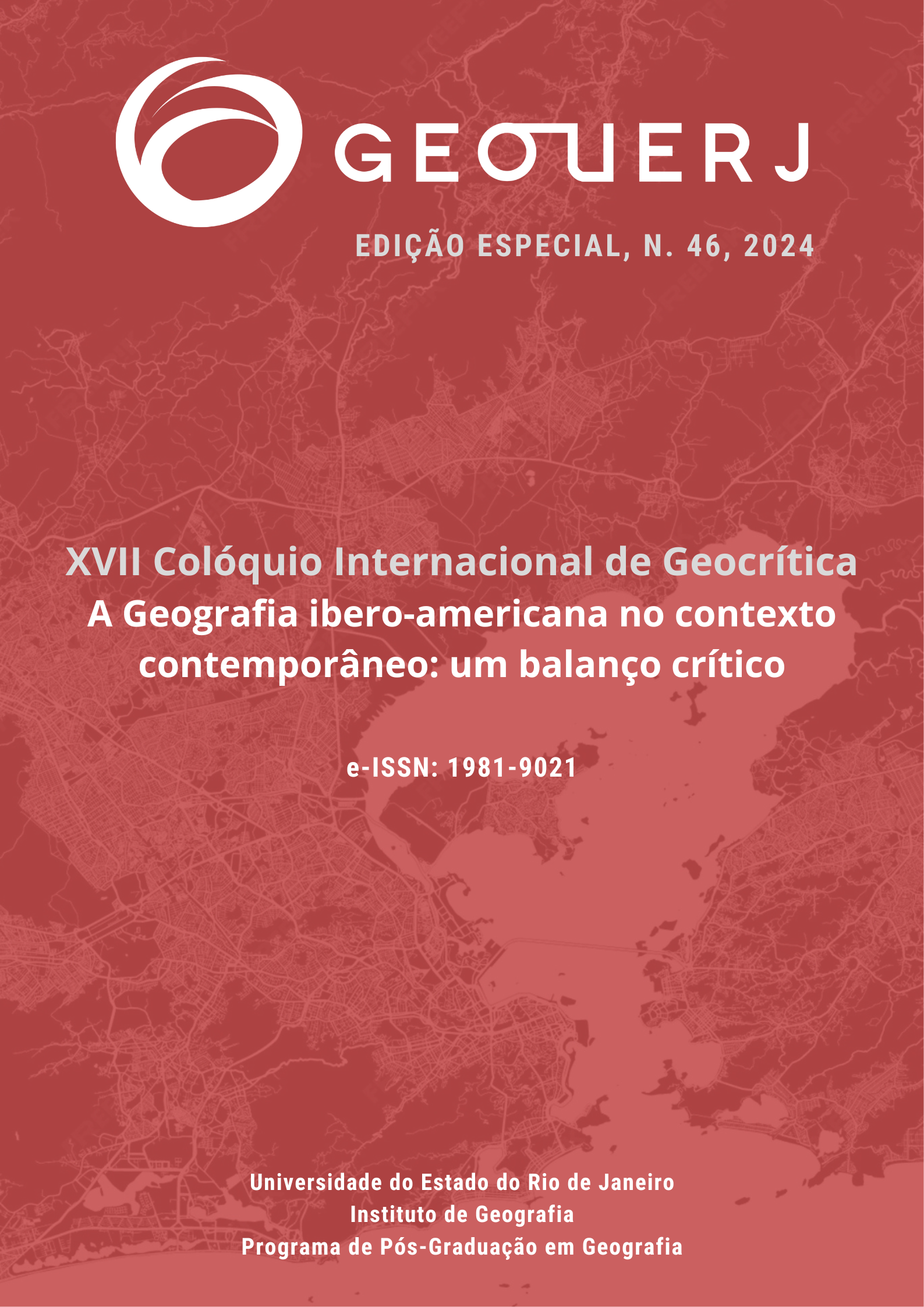POR QUE ESTUDAR AS REDES TÉCNICAS?
DOI:
https://doi.org/10.12957/geouerj.2024.87527Palavras-chave:
redes técnicas; conexão; poder; controle; cerceamento.Resumo
Tão presentes e indispensáveis, silenciosas e retumbantes, as redes técnicas compõem uma diversidade incrível de artifícios e objetos funcionalmente articulados, comandados pela política e demandados por sistemas produtivos, pela circulação, pelo consumo e por uma vida de relações. Contudo, não são apenas esses os motivos pelos quais podemos responder à questão anunciada no título deste texto. Estudamos as redes técnicas porque são sintomáticas de um mundo conectado e fluido, mas especialmente de um mundo tramado, controlado, segregado, espoliado e cada dia mais doentio. Elas formam um enredo geográfico especial não apenas porque estruturam os territórios, como também porque, ao mesmo tempo que viabilizam uma articulação cada vez mais complexa, intensa e acelerada de lugares, são vetores de controle, de segregação e de processos espoliativos sem precedentes na história. Além disso, aos responsáveis pela situação doentia que assalta o cotidiano e a atenção de milhares de pessoas mundo afora, as redes técnicas também têm sido utilizadas como elementos de vigilância, de manipulação e de difusão de políticas totalitárias em diferentes partes do mundo. As respostas à questão central deste texto estão organizadas em quatro seções. As reflexões ora apresentadas também são um chamado à desnaturalização das redes, atitude que pode nos inspirar a rastrear o seu comando, abrir o mapa e identificar os arranjos, usos e processos que delineiam os artifícios do poder e, em casos como o do Brasil, a persistência do atraso.
Downloads
Downloads
Publicado
Como Citar
Edição
Seção
Licença
Copyright (c) 2024 Denis Castilho

Este trabalho está licenciado sob uma licença Creative Commons Attribution-NonCommercial-ShareAlike 4.0 International License.
Os Direitos Autorais dos artigos publicados na Revista Geo UERJ pertencem aos seus respectivos autores, com os direitos de primeira publicação cedidos à Revista. Toda vez que um artigo for citado, replicado em repositórios institucionais e/ou páginas pessoais ou profissionais, deve-se apresentar um link para o artigo disponível no site da Geo UERJ.

Os trabalhos publicados estão simultaneamente licenciados com uma Licença Commons BY-NC-SA 4.0.


